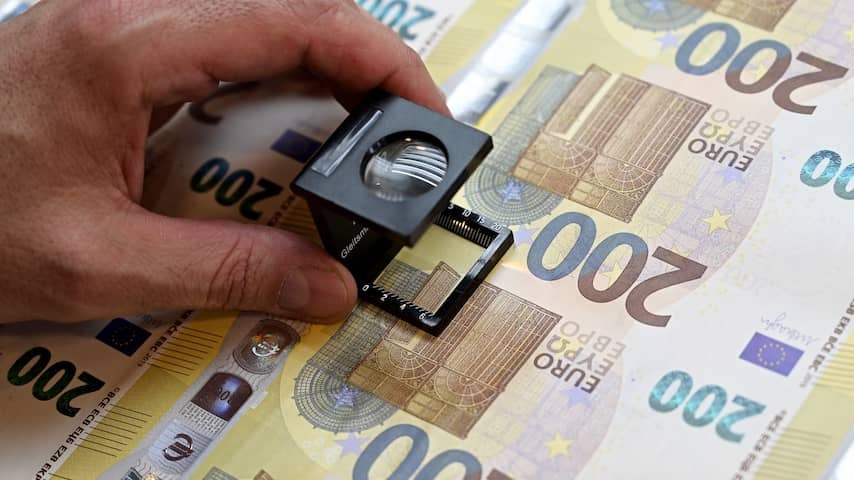
Banks will ask customers fewer questions when they use cash. Criminals like to use cash because it is difficult to trace, but customers find the questions annoying. Banks need to better assess the risks of, for example, money laundering.
If customers stay below a certain amount and there are no “risk-increasing factors,” they should not expect extra questions from banks, writes the Dutch Banking Association (NVB). Banks can determine the limit amount themselves, but the NVB mentions, for example, 20,000 euros for individuals and 30,000 euros for companies.
Risk-increasing factors for individuals include unusually large amounts, “unexpected cash behavior given the location,” or “peaks that do not fit seasonal patterns” such as holiday periods. The use of the new NVB standard should ensure that the money laundering approach for cash is more risk-based.
“Another improvement is that a transaction with a 200 euro bill will not immediately prompt banks to ask questions,” writes the NVB. “Customers often find the requests for information and documentation annoying because it is sometimes unclear why these questions are being asked.”
Banks must clearly explain why the information is being requested. The main reason banks are extra alert for cash transactions is clear according to the NVB: “Cash is often used by criminals because it is difficult to trace.”
Getting risks in view
The decision to change the approach is the result of consultation between banks, employers’ organizations and De Nederlandsche Bank (DNB). A spokesperson for DNB says that the supervisor appreciates the cooperation in this area.
“Cash plays an important role in payment transactions, but also has specific integrity risks,” writes the spokesperson. “The standard provides banks with concrete tools to identify and mitigate these risks.”